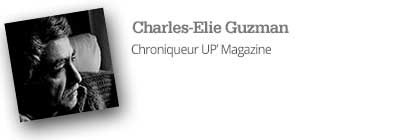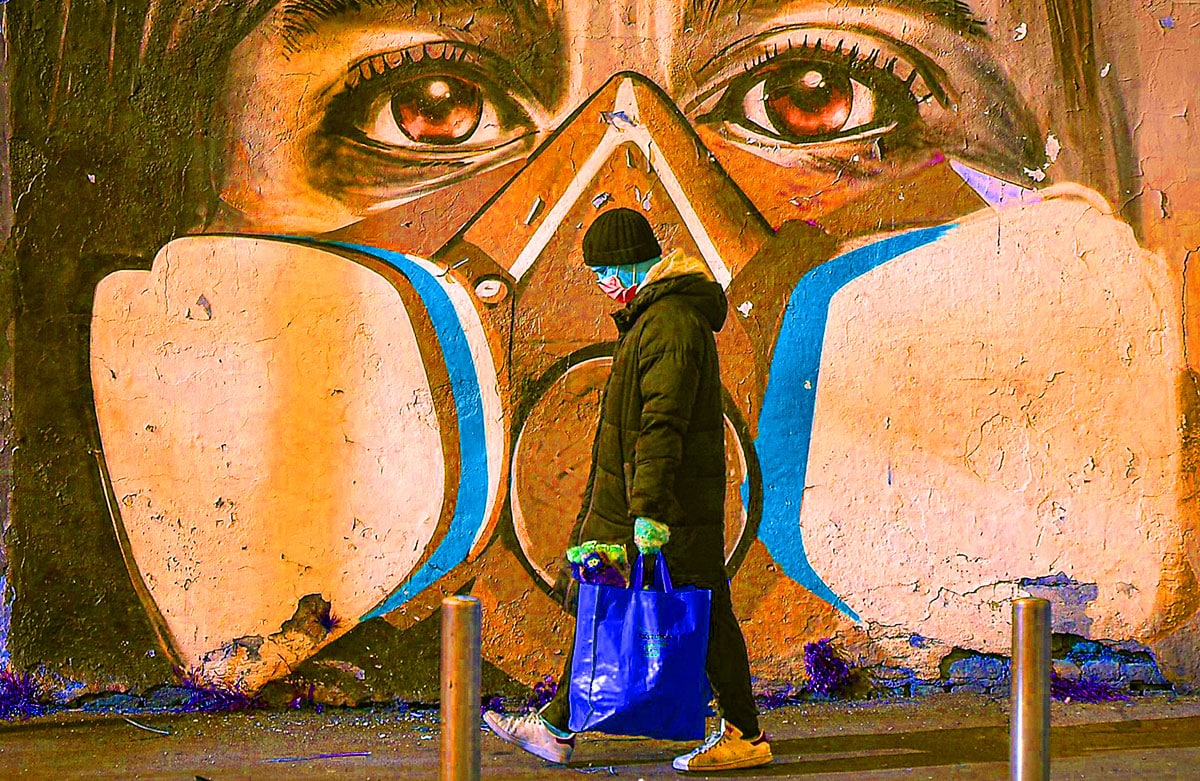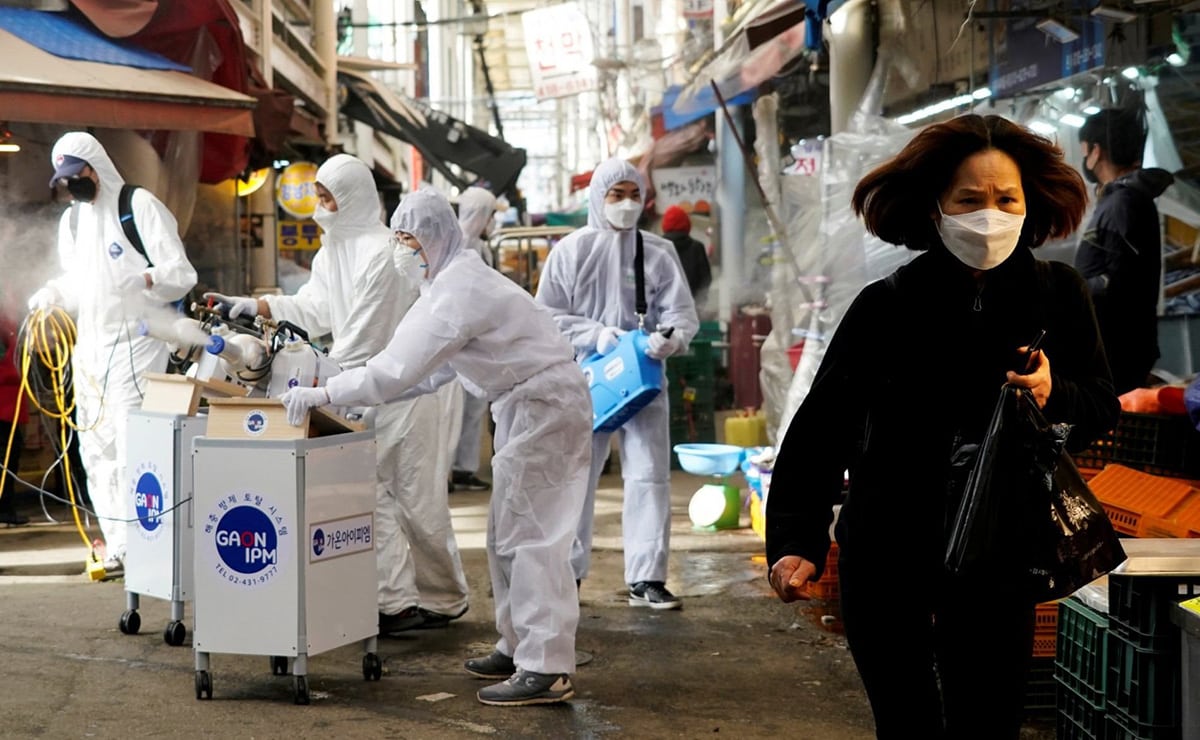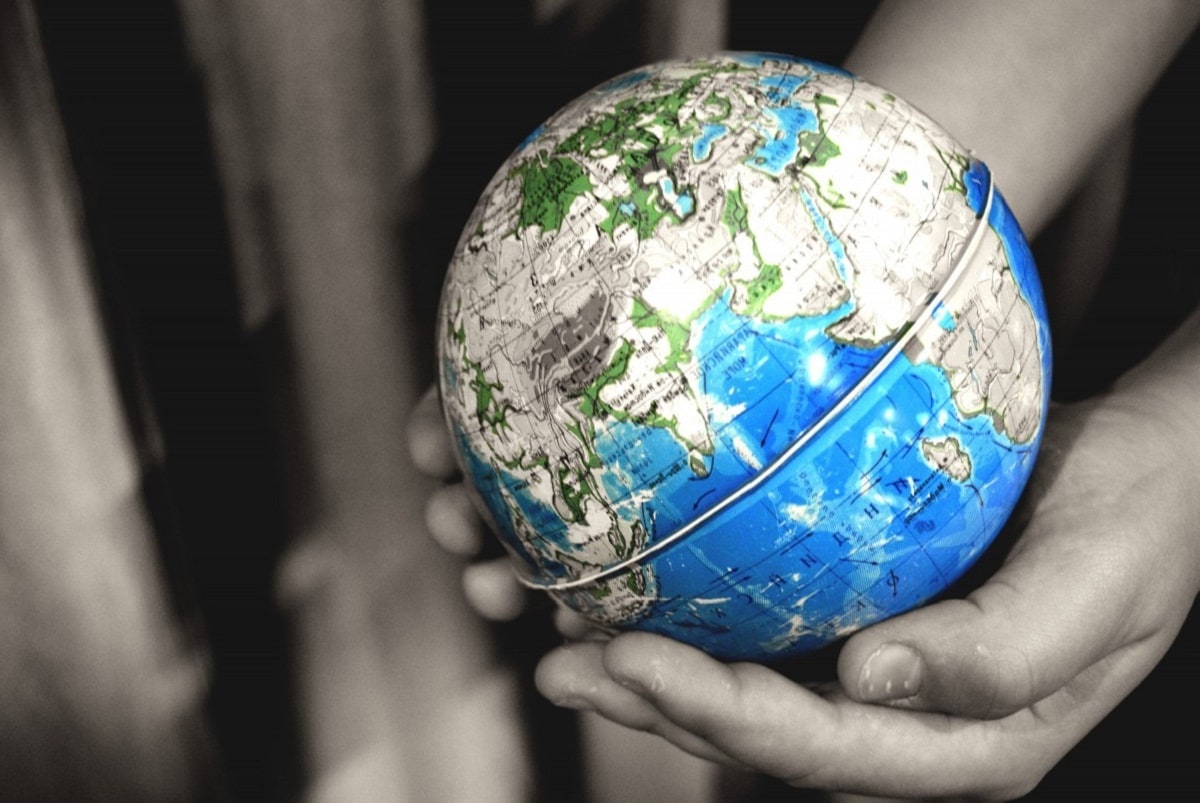While questions remain unanswered about the coronavirus, its nature, dynamics, capacity to spread and even mutate, more is known about the characteristics of the populations first affected. The latest studies confirm that the elderly and vulnerable provide the largest number of deaths. The virus would thus attack our physiological vulnerabilities. But what is also to be feared is that it attacks the vulnerabilities of our societies. The coronavirus crisis, first and foremost a health crisis, is coupled with an economic and political crisis that is already looming in several countries. Should we fear a convergence of attacks - health, environmental, economic - in a world that has become increasingly vulnerable?
If there is one certainty in the period of uncertainty we are going through, it is that the coronavirus finds its prime targets in the elderly. It is true that the media are reporting cases of young adults, children and even infants who have been struck down by Covid-19. But if these cases move public opinion, statistically they are only exceptions that confirm the rule. The coronavirus kills the elderly, preferably those weakened by other diseases.
A study carried out in Italy by the Higher Institute of Health was published on 26 March. It shows that nearly three out of four Covid-19 victims suffered from high blood pressure. Half of the patients (50.7%) who died in Italy from the coronavirus suffered from at least three other pathologies, and 25.7% from two other pathologies.
This study, which is based on 6,801 Covid-19 victims, reveals that 73% of the victims suffered from high blood pressure. It is the most common condition among the deceased. Another pathology often presents among coronavirus victims is diabetes, of which 31.3% of Covid-19 victims were affected.
Vulnerability and immune overreaction
Heart disease is also an important co-morbidity factor: 27.8% of victims suffered from ischemic heart disease (heart problems due to narrowing of the coronary arteries), 23.7% from atrial fibrillation (a heart rhythm disorder that causes the heart to beat rapidly and irregularly) and 17.1% from heart failure.
Among the other conditions suffered by the coronavirus victims in this study, 22.2% had chronic kidney failure and 17.3% had cancer within the last five years.
The study also confirms what other research has already shown: the age factor is a determining factor. The average age of Italian victims is 78. There is an over-representation of males.
The French figures published by Santé Publique France on 26 March present the same profile. People under 45 years of age represent only 0.2% of hospitalized patients, while people over 75 years of age provide 78% of patients.
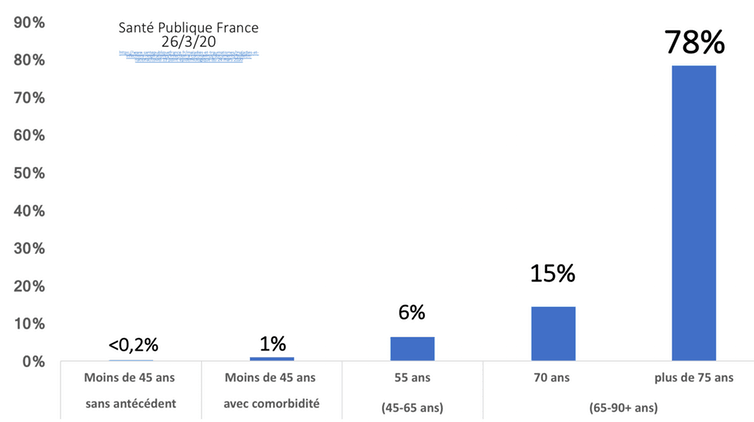
The oldest and therefore most fragile subjects find themselves with weakened immune defenses in the face of an aggressor with whom their natural protection system had never been confronted.
For Professor Jean-François Toussaint, it is the very notion of vulnerability that must be deepened in the context of the crisis we are going through. He explained that the vital parameters of any individual are always situated in relation to an "optimum". This defines the ranges within which a subject's health is assessed and monitored: blood pressure between 90/60 and 140/90 mmHg; blood glucose levels of 1 g/l +/- 0.25; temperature between 33 and 41°C; body mass index or BMI between 18.5 and 25 kg/m2 , etc. He explains that the vital parameters of any individual are always in relation to an "optimum".
Outside of these optimized intervals, the body is subject to metabolic stresses that reduce its ability to adapt. All the pathologies or insufficiencies that an organism undergoes (cardiac, renal, respiratory, neuronal...) move away from this optimum.
The organism fights and becomes inflamed, the patient succumbing in many cases not to the virus itself, but to a hyper immune reaction.This is why the risk factors for severe coronavirus disease, identified in all studies, including the recently published Italian study, continue to be closely correlated with the mortality rate of Covid-19. The virus looks for entry points into our immune defence system, taking advantage of the body's weak points.The weakened subject, whose physiological constants are far from the "optimum", undertakes a fight against the attacking virus by developing all the defence strategies of which he is capable: fever, cough, reactions to the infection. The organism fights and becomes inflamed, the patient succumbing in many cases not to the virus itself, but to a hyper immune reaction.
This crisis makes us aware of our fragility,
The coronavirus does not only attack fragile organisms. It endangers most of the human societies in which it spreads. It forces states to confine their citizens, economic activity to come to an abrupt halt, and the streets to be emptied of life. Time seems to be suspended for nearly four billion people in the world.
" This crisis makes us aware of our fragility, " writes Erik Orsenna in his Trac de crise published by Gallimard. It is true that the world's equilibrium has seemed extremely fragile in recent years. Inequalities have increased while risks have multiplied. The climate emergency has gradually entered most people's consciousness, its tempo beating the alert more and more loudly. It is on this fragile world that the coronavirus pandemic strikes. It reveals a level of unpreparedness unimaginable for over-organized societies such as ours: shortage of masks, respirators, intensive care beds, personnel, gloves, hydro-alcoholic gels... All these deficiencies raise the crucial question of the governments' confidence in their ability to protect, anticipate and govern in times of crisis.
The sacrosanct taboo of the budget deficit is crackingWhile economies have long sung the tune of debt and austerity, they are now turning on the money board and raining down billions by the thousands. Donald Trump's America is promising $2 trillion to support its economy threatened with embolism by the virus, while Europe is not to be outdone and is supporting its economic activity at arm's length, praying that it does not collapse. Even in Germany, the sacrosanct taboo of the budget deficit is cracking, with Chancellor Merkel assuring: " We will do what is necessary. And we are not going to ask ourselves every day what that means for our deficit. This is an exceptional situation. "In the face of the coronavirus that promises so many victims, we don't count. No matter the cost, health comes first! A credo taken to heart by almost everyone, willingly or unwillingly.
Thus President Trump, who, once he got over his irritation at discovering that the coronavirus had no Twitter account, realized that the disease was going to cause many deaths in his country. In an about-face of which he has the secret, he first denied the seriousness of the epidemic, vowed that Americans would be in great shape without confinement, ready to work and celebrate Easter on April 12, only to consent the next day to measures of social distancing until April 30. The idea of shutting down the economy for an unfortunate virus horrified him. In his balance, he weighs the stock market or life, the sacrifice of a few hundred thousand of his fellow citizens and the business of large groups and his friends. For the American president is certain of one thing: he will not be re-elected next November unless the economy is in good shape.
Yet the world's economies are in bad shape. And by a strange domino effect, they are all contaminated because they are all intertwined, closely inserted into each other. We then discover that the "value chains" of globalization are gigantic loopholes of fragility. The virus adores our frailties; it penetrates them and revels in them.
Hit by evil, with stock market prices leaning dangerously towards unknown abysses, economies are trying to react. Like the bodies of Covid-19 patients, they overreact. The economy, like the lungs of the sick, burns itself up, burns its cartridges without counting the cost. The world seems to be throwing its last strength into a battle that is only the first of a series.
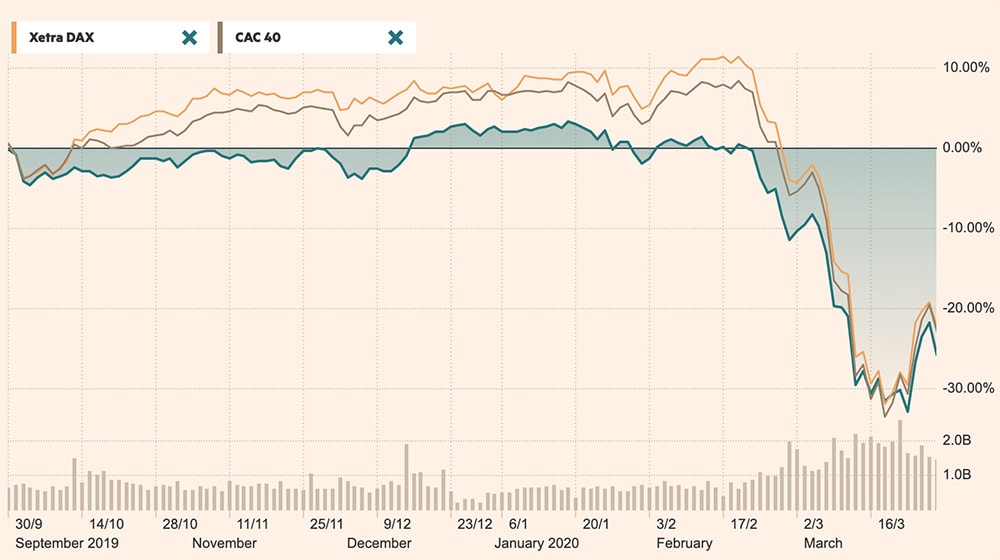
Because the climate crisis tells us that the times ahead will not be rosy. They will be hot, dry and deadly. Forest fires like those in Australia will multiply, the air in our cities will be unbreathable and deadly. The CO2 that we release into the atmosphere will bring us fires from the sky and madness from the waters. New viruses will multiply, experts say, as we encroach without limits on the boundaries of nature; our lifestyles and eating habits will disarm us in the face of emerging bacteria, in front of which our antibiotics are no longer worth anything.
We know how to avoid the worst climate; all the experts tell us so. But the parenthesis of forced confinement that the planet is experiencing right now shows how high and constraining the march is for the sky to clear and the birds to sing again.
Our frailties disarm us in the face of what nature is preparing for us. We burn our forces without counting from the first salvo, while the vectors of the aggressions we ourselves have provoked are constantly arming and strengthening. The coronavirus crisis is a harbinger of this. What lessons will we learn from it? What further efforts will we be able to make?
